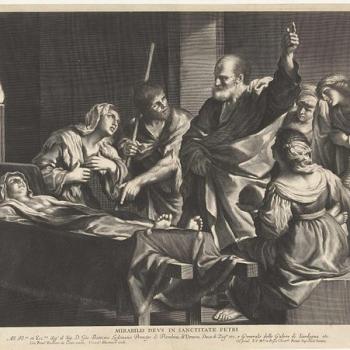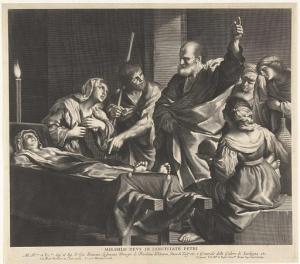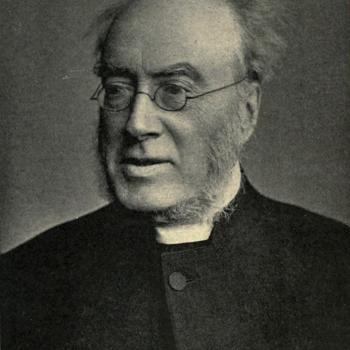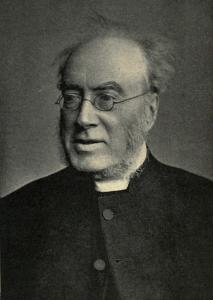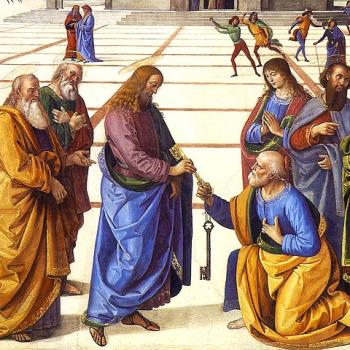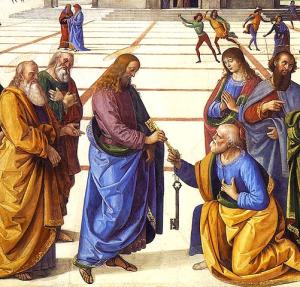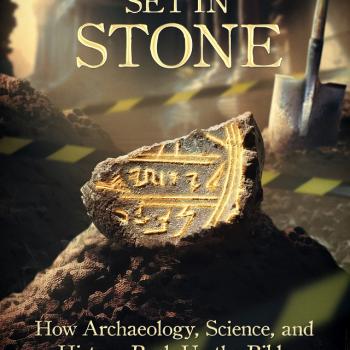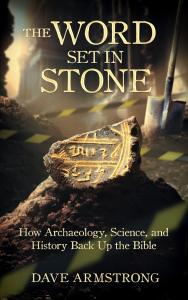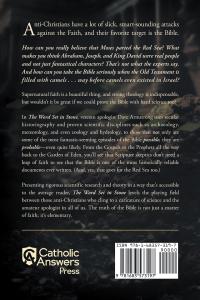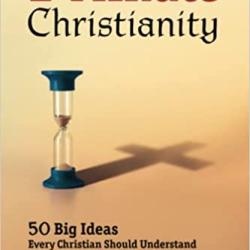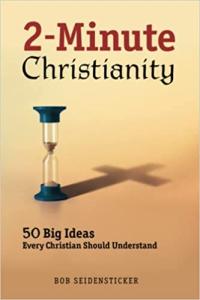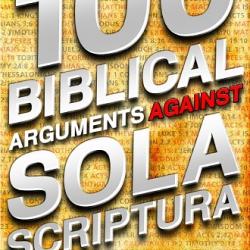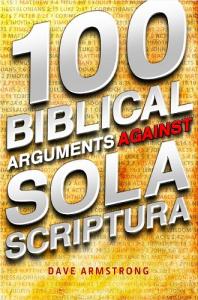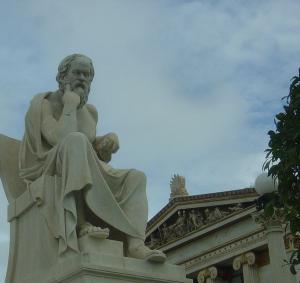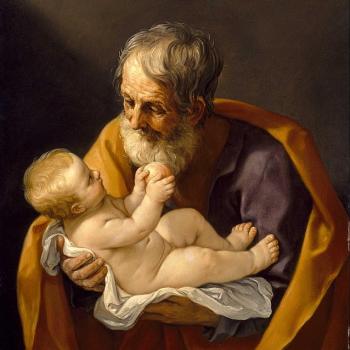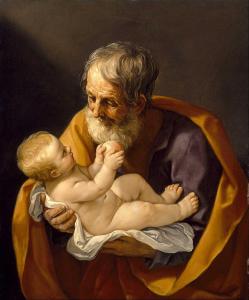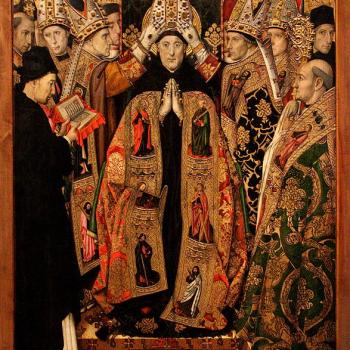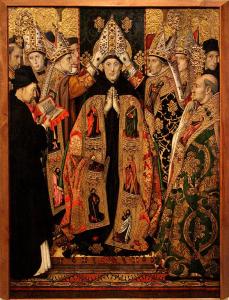Jason Engwer, a Protestant apologist who runs the Triablogue site, wrote posts entitled, “Agreement Among The Gospels About How Jesus Raised The Dead” (5-29-22) and “Did Jesus offer support for praying to the deceased by speaking to people he raised from the dead?” (3-5-23). I replied with my article, “Prayers to and for the Dead: Did Jesus & Peter Talk to Dead People Before They Rose from the Dead, and — Along with Elijah and Elisha — Pray for the Dead, or Only Ask Them to Move After They Were Raised?” (3-5-23). Jason then replied to me with his piece, “Do Luke 8:55 and Acts 9:40 support praying to the dead?” (3-9-23). His words will be in blue. My Bible passages are from RSV.
*****
Jason never mentions my name in his counter-reply. But it’s clearly replying to my piece, since the two verses in his title were prominent in my reply, and he starts out by writing:
Let’s consider some objections to my post earlier this week about whether Jesus and Peter offered support for praying to the deceased when they spoke to people they raised from the dead in the gospels and Acts. Probably the two best passages that could be cited in support of interpreting this material in a way that supports prayers to the deceased are Luke 8:55 and Acts 9:40.
I had answered him on the same day he wrote his second of two articles on the topic, and his current reply came four days after that. It’s not rocket science to put two and two together.
Luke 8 mentions the return of the girl’s spirit to her body after mentioning Jesus’ comment to her. Acts 9:40 says that Peter turned to the woman’s body just before speaking to her, and we don’t normally refer to a living person with a phrase like “the body”. Rather, it’s more common to use that language when referring to a corpse. Shouldn’t we conclude, then, that Jesus and Peter were speaking to the dead in these passages, which offers support for praying to the deceased?
That was indeed my central argument. If he can’t bring himself to link to my article, so that people can read it in context, at least the next best thing is to accurately describe it to his readers. I thank him for this courtesy, which is not always a given in discussions like these, believe me.
I cited several resurrection passages across both the Old and New Testaments. The resurrections often, but not always, occur through touching (1 Kings 17:21-23, 2 Kings 4:34-37, 13:21, Acts 20:10) or occur in passages that mention touching in a way that possibly or probably was instrumental to the raising of the dead person (Matthew 9:25, Mark 5:41-42, Luke 7:14-15, 8:54-55). Notice that the two passages cited in the title of this post are in Luke’s writings and that a few of the passages just cited in this paragraph are from his writings. So, Luke is one of the sources who often associates touching with the raising of the dead.
It’s true that touching is usually involved. Jesus routinely used the physical (analogous to sacramentalism) when healing. In one case He made mud with His own saliva and rubbed it in a blind man’s eyes. The question at hand, however, is whether He and others spoke to, and/or prayed for dead persons while they were dead. This, of course, is anathema to Protestantism, which is why Jason is fighting so hard to try to escape from this interpretation of these passages having to do with raising the dead. I shall contend that he is desperately special pleading, and bring several Protestant commentators as my witnesses.
Jason proves nothing if he can’t establish with a high degree of plausibility that in all cases (or even one undeniable one) the talking and prayers occurred after the person was dead. It will do no good for him to appeal to cases where no words are mentioned. That’s simply an ineffectual argument from silence. Moreover, if the text mentions no words, it’s not proof that none were spoken (only that none were recorded, either because none were indeed spoken, or because the writer chose not to include them, for whatever reason). But that’s an argument from silence, too. In other words, this particular dispute is a wash.
But we can analyze the passages where words are recorded, to try to determine when they were uttered, which is a crucial issue to be resolved in relation to prayers to and for the dead. The first passage that Jason mentions is 1 Kings 17:21-23, where the prophet Elijah raised a child from the dead. But he doesn’t present the passage in full to his readers. I did (with 17:17-20 added):
1 Kings 17:21-22 Then he stretched himself upon the child three times, and cried to the LORD, “O LORD my God, let this child’s soul come into him again.” [22] And the LORD hearkened to the voice of Eli’jah; and the soul of the child came into him again, and he revived.
Now, Jason makes an argument that these texts aren’t necessarily chronological. He wrote:
Why, then, does Luke 8:55 mention the return of the girl’s spirit after Jesus’ comment to the girl? Probably because Luke isn’t mentioning things in chronological order. People often write chronologically, but not always. Go on to verse 56. It mentions that the girl’s parents were amazed. Did their amazement not begin until after the events of verse 55? No, they surely were amazed as soon as they saw their daughter’s body moving. They wouldn’t have waited until after she had gotten up and started walking to be amazed. They would have been amazed as soon as she even started to get up, if not sooner (e.g., seeing her breathing, seeing her eyes open). What Luke is doing is focusing on some events centered around Jesus (verse 54), then focusing on events centered around the girl (verse 55), then focusing on events centered around the parents (verse 56). It doesn’t follow that the events of each of the latter two verses happened after what’s mentioned in the previous verse(s). There could be some overlap in the chronology involved. Maybe an analogy would help here. Let’s say I’m describing what a man and his wife did one day. I mention the man’s activities in chronological order: going to work, going to the bank after work to deposit a check, etc. And I mention his wife’s activities in chronological order: doing some shopping, making dinner, etc. Since I mentioned the wife’s activities after her husband’s, does it follow that everything the wife did occurred after everything the husband did? If the last activity I mentioned in the man’s life was going to bed, and the first activity I mentioned in the woman’s life was getting out of bed, does it follow that she got out of bed, went shopping, etc. after her husband went to bed? Of course not. Rather, their activities overlapped. She was shopping while her husband was at work, she was making dinner while he was going to the bank, and so on. I shifted my focus from the man’s activities to the woman’s without intending to suggest that the woman’s activities occurred later. Given the totality of the evidence, as discussed in this post and my previous two, Luke seems to be doing the same kind of thing in Luke 8.
I’ll get to Luke 8 in due course, and I freely grant that Bible writers not infrequently do not write according to strict chronology. But let’s apply this reasoning to 1 Kings 17:21-22. How does this argument overcome the clear data there? It simply cannot, because included in Elijah’s prayer is proof that he was praying for a dead person (“O LORD my God, let this child’s soul come into him again”). There’s absolutely no way to explain that away, according to hostile Protestant theology, that such an event is supposedly impossible and indeed, wicked.
Resorting to a non-literal “chronology” is powerless against it. Elijah is praying regarding a child whose soul has left him (the very definition of death), and whose soul returns, in answer to his prayer, as indicated by the next verse (“and the soul of the child came into him again, and he revived”). Like I said last time: game, set, match (that’s a tennis term, for those unfamiliar with it). Maybe this is why Jason ignored this counter-argument of mine. If you have no cogent reply, you can either concede and retract, or ignore your opponent’s argument. Jason opted for the latter, lest he be embroiled in the horrifying and unthinkable circumstance — an existential crisis, in fact — of having to admit that a Catholic has the better exegetical argument.
One of the most well-known principles of biblical interpretation, or hermeneutics, is to interpret the less clear passages from the clear ones. I just did that by presenting 1 Kings 17:21-22. But Jason wants to do the opposite: ignore this crystal-clear verse (as he in effect does by refusing to exegete it) and draw a conclusion from mere speculation about less clear passages, involving the perpetually weak argument from silence logical fallacy. This impresses no one familiar with logic (I took a course in it, in college).
It’s the same dynamic in the similar passage where Elisha raises the dead, which Jason includes in his list (and which I also wrote out in my previous reply, for the convenience of my readers). Elisha “went up and lay upon the child, putting his mouth upon his mouth, his eyes upon his eyes, and his hands upon his hands; and as he stretched himself upon him, the flesh of the child became warm” (2 Kgs 4:34). I think it’s pretty clear that the latter clause is a synonym for “came to life.”
Jason’s other point is that touch is the key factor in play (it certainly is). But again, that tells us nothing about when prayers occurred, unless the text expressly informs us. Here is Jason’s argument (I actually want my readers to read opposing views, so they can better make up their minds):
In addition to that larger context related to resurrections and touching, notice that all three of the versions of the Luke 8 resurrection (found in each of the Synoptics) involve touching. In fact, Matthew’s account mentions the touching without mentioning Jesus’ comment to the girl. Since the touching is the common denominator in all three of these Synoptic passages, whereas Jesus’ comment isn’t even mentioned in Matthew’s account, the touching seems to be the most plausible candidate for the means by which the resurrection was brought about. And Mark and Luke mention the touching before mentioning Jesus’ comment, which suggests that the girl came back to life before Jesus spoke to her. Matthew’s account has Jairus saying that Jesus can resurrect his daughter by touch, saying, “lay your hand on her, and she will live” (9:18). That’s probably why Matthew only mentions the touching, without saying anything about Jesus’ comment to the girl. It was the touch that raised her from the dead.
Further support for that reading is found in the healing that’s narrated just before this resurrection in every one of the Synoptics. Jesus heals a woman with a hemorrhage when she touches his cloak. It would make sense for two miracles brought about through touching to be grouped together in each of the Synoptics. The fact that each of the Synoptic accounts in question is preceded by an account of healing through touch increases the likelihood that the touching is the means of the resurrection mentioned in the next account.
Jason mentions Matthew 9:25:
Matthew 9:25 But when the crowd had been put outside, he went in and took her by the hand, and the girl arose.
Catholics don’t have to deny that touch was a key component. It certainly was, but this doesn’t affect our argument as to prayer for the dead. This passage doesn’t include Jesus talking to her or praying for her, but the cross-reference (Lk 8:54-55) does. Matthew simply omits that part. The individual Gospels often don’t include every detail, or present different (but complementary) details, which we fully understand from reading all of them in harmony. Thus, we interpret the less explicit passage by the clearer one with more detail.
Luke includes these words. Jesus said, “Child, arise” and then the text states: “And her spirit returned.” Thus (since we believe in inspired, inerrant Scripture), we know what happened. Jesus simultaneously talked to the dead and prayed for the dead (that the person would rise from the dead). Protestants maintain that neither thing can or should occur. Then they have a huge problem, don’t they? Flatly disagreeing with Jesus is not a good place for any Christian to be. Another passage Jason mentions is more like Luke:
Mark 5:41-42 Taking her by the hand he said to her, “Tal’itha cu’mi”; which means, “Little girl, I say to you, arise.” [42] And immediately the girl got up and walked (she was twelve years of age), and they were immediately overcome with amazement.
This includes Jesus’ touch and then words which we would say constitute prayer for and in effect also to the dead. Jason, however, argues a thing that is absolutely absent from the text: that the girl had already been raised as soon as he touched her, then, by his saying “arise” she demonstrated to the onlookers that she was raised. I submit that this is not straightforward, common sense exegesis, and that it is, rather, eisegesis (reading into a text what isn’t there).
He argues from silence and sheer speculation, demanded by a prior predisposition; I argue from recourse to the cross-reference parallel text which is clearer and more explicit: “taking her by the hand he called, saying, ‘Child, arise.’ And her spirit returned” (Lk 8:54-55). See the two different methodologies of exegesis and hermeneutics? Which do you (dear reader) find more plausible? Make up your own mind. I have given you both sides of the argument: each from its proponent. That’s what I always do in debates. I assume the intelligence, open-mindedness, and critical capabilities of my readers (whatever their denominational affiliation). Jason provides another example of a raising:
Luke 7:14-15 And he came and touched the bier, and the bearers stood still. And he said, “Young man, I say to you, arise.” [15] And the dead man sat up, and began to speak. And he gave him to his mother.
Again, I submit that the straightforward, common-sense reading is that Jesus commanded the man to rise, then “the dead man sat up” and spoke. He prayed for him (a dead man) and spoke to him, and then he rose from the dead. But Jason would have it, — with no explicit evidence whatsoever — that he was raised already when Jesus spoke to him. This passage is interesting in that Jesus didn’t touch the dead person; He only touched the “bier” (a platform on which a coffin sits). So this doesn’t fit Jason’s proposed pattern, but it perfectly fits our interpretation and theology.
There’s not much more we can say about these matters. All we can really do at this point is appeal to prominent Protestant commentators, in order to see if they think these people were dead when Jesus talked to them and/or prayed for them to be risen, and if the immediate cause of His raising them was His touch or word. Here we go. Let’s take them in reverse order:
Luke 7:14-15
Jamieson-Fausset-Brown Bible Commentary: . . . with a word of command, bringing back life to the dead body . . .
Gill’s Exposition of the Entire Bible: and he said, young man, I say unto thee, arise. The Ethiopic version adds, “and he arose”: Christ spoke as one that had the keys of death and the grave; and divine power went along with his words, which raised the dead man to life . . .
Pulpit Commentary: Young man, I say unto thee, Arise. The Lord of life performed his miracle over death in a very different fashion to those great ones who, in some respects, had anticipated or followed him in these strange deeds of wonder. Before they recalled the dead to life, Elijah mourned long over the sea of the widow of Sarepta, Elisha repeatedly stretched himself as he agonized in prayer upon the lifeless corpse of the Shunammite boy, Peter prayed very earnestly over the body of Dorcas at Lydda. The Master, with one solitary word, brings the spirit from its mysterious habitation back to its old earthly tenement – “K;m!” “Arise!”
Alford’s Greek Testament Critical Exegetical Commentary: All three raisings from the dead are wrought with words of power,—‘Damsel, arise,’—‘Young man, arise,’—‘Lazarus, come forth.’
Calvin’s Commentaries: Young man, I say to thee. By this word Christ proved the truth of the saying of Paul, that God calleth those things which are not, as they were, (Romans 4:17.) He addresses the dead man, and makes himself be heard, so that death is suddenly changed into life. We have here, in the first place, a striking emblem of the future resurrection, as Ezekiel is commanded to say, O ye dry bones, hear the word of the Lord, [37:4.] Secondly, we are taught in what manner Christ quickens us spiritually by faith. It is when he infuses into his word a secret power, so that it enters into dead souls, as he himself declares, The hour cometh, when the dead shall hear the voice of the Son of God, and they who hear shall live, (John 5:25.)
This is from a web page that presents many Protestant commentaries. I can find none that take Jason’s interpretation. The ones that clearly state when and how the resurrection occurred agree with my position. John Calvin’s take is particularly striking and decisive and completely contrary to Jason’s position.
Mark 5:41-42
Ellicott’s Commentary for English Readers: Talitha cumi.—Here, as in the Ephphatha of Mark 7:34, the Evangelist gives the very syllables which had fallen from the lips of the Healer, and been proved to be words of power.
Bengel’s Gnomen: Talitha was used but once; for Jesus, in raising the dead, did not employ Epizeuxis [repetition of the same word; see Append.], Luke 7:14; John 11:43. For His power was always instantaneous in its effect; comp. Numbers 20:11.—σοὶ λέγω, I say unto thee). . .
Again, of the commentaries that took a definite stance on our issue, this is what I found. I couldn’t find any that agree with Jason. If there are some, I’m sure he will present them in his next “reply” to me, where I am not named. :-)
Matthew 9:25
Benson Commentary: As if he had been going to awake her out of sleep: and, with a gentle voice, but such as the persons in the chamber could easily hear, he said, Talitha cumi, which is, Damsel, arise. See Mark. And the maid arose — In an instant she revived and sat up, just like a person who, being called, awakes out of a soft sleep. Luke says, Her spirit came again; an expression which implies that she was really dead, and that the soul exists separately after the body dies . . .
Gill’s Exposition of the Entire Bible: His taking her by the hand, was not all that he did, but he called, as to a person asleep, and said unto her these words, “Talitha cumi”, as recorded by Mark, and are also in Munster’s Hebrew Gospel of Matthew; and which, in the Syriac language, signify, “maiden, arise”; and immediately, directly, as soon as ever he had thus said, the maid arose, as out of sleep; she revived, her soul came to her again, and she got off of the bed, and walked about house, and food was ordered to be given to her. All which most fully demonstrated that she was really restored to life, which was as clear a case, as that before she was really dead.
Note that these commentators incorporate Jesus’ words from parallel verses, even though they don’t appear in Matthew 9:25. That’s how importantly they take into account undoubted cross-references, because they believe in biblical inspiration and hence, internal harmony.
Calvin’s Commentaries: he proves the efficacy of the Gospel for quickening men from the fact, that at the last day he will raise the dead by his voice out of their graves.
It’s the same thing again: I can find no commentaries that reason as Jason does, and several that fully agree with my view. And remember, these are all Protestant sources, with no bias towards prayer for the dead.
Luke 8:54-55
Calvin’s Commentaries: It is easy to learn from this the great efficacy of the voice of Christ, which reaches even to the dead, and exerts a quickening influence on death itself. Accordingly, Luke says that her spirit returned, or, in other words, that immediately on being called, it obeyed the command of Christ.
Gill’s Exposition of the Entire Bible: And her spirit came again,…. Her soul, which was departed from her, upon the all-powerful voice of Christ, returned to her body; and “re-entered”, as the Ethiopic version adds: this shows that the soul is immortal, and dies not with the body; that it exists in a separate state from it after death, and will hereafter re-enter the body, and be again united to it in the resurrection . . .
Ditto . . .
Acts 9:40
Gill’s Exposition of the Entire Bible: and [Peter] kneeled down and prayed; it may be, as yet, he had not the mind of God in this matter, and therefore betook himself to prayer, in which he chose to be private and alone: and turning him to the body; the corpse of Dorcas, after he had prayed, and was well assured that the power of Christ would be exerted in raising of it: said, Tabitha, arise; which words were spoken in the name and faith of Christ, and were all one as, if Christ himself had spoken them; for to his power, and not to the apostles, is the following miracle to be ascribed: and she opened her eyes; which, upon her death, had been closed by her friends; . . .
Cambridge Bible for Schools and Colleges: Asking God that the consolation to be given to these mourners might be the restoration of the dead woman to life.
Calvin’s Commentaries: Turning towards the corpse. This seemeth also to be contrary to reason, that he speaketh unto a corpse without feeling; but this speaking unto the dead corpse was one point of the vehemency whereunto the Spirit of God enforced Peter. And if any man desire a reason, this form of speech doth more lively express the power of God in raising the dead, than if it should be said in the third person, let this body receive life again and live. Therefore, when as Ezekiel doth shadow the deliverance of the people under a figure of the resurrection: “O dead bones,” (saith he,) “hear the word of the Lord,” (Ezekiel 37:4.) And Christ saith, “The time shall come when the dead shall hear the voice of the Son of God,” (John 5:25.) For this was indeed the voice of Christ, which was uttered by the mouth of Peter, and gave [back] breath to the body of Tabitha. The circumstances following serve to confirm the certainty of the miracle.
Ditto.
I rest my case, as to exegesis and [Protestant] biblical commentary.
Prayer to God is mentioned explicitly and frequently from Genesis onward. The lack of references to praying to the deceased is best explained by a lack of the practice, including in the timeframe leading up to and just after the Luke 8 passage.
Now Jason is trying to defend his predisposition that he brings to this issue: that no one prayed for the dead or even talked to them. This, too, is false. Jesus taught in Luke 16 that the rich man who was dead and in Hades, prayed to the dead Abraham; making both a petition and an intercessory request. Abraham turns him down (just as God declines some prayers), but never says that he shouldn’t ask him these things (as he was bound to do if Jason is right). The usual reply is that this is a parable, and as such, irrelevant. But that won’t do. Parables never include proper names, as this story does.
But even if we grant that it’s a parable, this attempted “escape” from its implications accomplishes nothing, since Jesus couldn’t have taught falsehood and theological error in it. Parables are for moral and theological instruction. No parable contains, for example, admonitions to lust or murder or greed. They cannot and could not do so, for that would be leading people astray and calling evil good. Therefore, even if Lazarus and the rich man is regarded as a parable, Jesus couldn’t teach the false theology (assuming Protestant premises for the sake of argument) of asking a dead man to answer a petition and intercessory request. The fact that He did do so is proof that the thing is correct and permissible. As an extra bonus it comes eight chapters after the disputed passage in Luke 8.
– The Old Testament prohibitions of attempting to contact the deceased include references to consulting mediums and such, but also use language broad enough to include praying to the deceased. I’ve discussed those passages elsewhere, and they suggest that Jesus wouldn’t have prayed to the dead or intended his comments in these resurrection passages to be taken as warrant for praying to the deceased.
This is the usual collapsing of all invocation of the saints or any talking to the dead whatever as necromancy or other forbidden occultic practice. I dealt with this in my article: Invocation of the Saints = Necromancy? [10-18-08].
As with Luke 8, it’s helpful to look at the account that’s just before the one in question in Acts 9. In the healing that occurs just before the resurrection in Acts 9, Peter says, “Aeneas, Jesus Christ heals you; get up and make your bed.” (verse 34) The verse then says the man got up, as instructed. Obviously, the man couldn’t get up and make his bed while he was paralyzed. Rather, Peter is arranging for a demonstration that a healing has already occurred.
And once again, the straightforward (and I would add, obvious) interpretation is that he was healed by Peter’s word. John Calvin, in his Commentaries, wrote about Acts 9:34:
Jesus Christ maketh thee whole. It is certain that the apostles would never have attempted the doing of miracles, unless they had been first certified of the will of God, whereupon the effect did depend. For they had no such power of the Spirit given them that they could heal whatsoever sick persons they would; but as Christ himself used a measure in his miracles, so he would have his apostles to work no more than he knew were profitable. Therefore Peter did not rashly break out into these words; because he might have set himself to be laughed at, unless he had already known the will of God. It may be that he prayed apart. The Spirit who was the author of all miracles, and which wrought by the hand of Peter, did even then direct his tongue, and did move his heart by a secret inspiration. And in these words Peter showeth plainly that he is only the minister of the miracle, and that it proceedeth from the power of Christ; that he may by this means extol the name of Christ alone.
The same is likely occurring in the next account, the one we’re focused on here. Tabitha is being told to arise in the sense of moving her body to demonstrate that she’s already been raised from the dead. She’s described as doing so in verse 40 (“she sat up”), after which Peter “raised her up” (verse 41). In one of my previous posts, I cited the example of Lazarus in John 11:43-44, who’s told to “come forth”, then is described as coming forth from the tomb. He wasn’t being told to come forth from death. Rather, he was being told to come forth from the tomb after a resurrection that occurred earlier (probably what Jesus was referring to when he thanked the Father for having heard him in verse 41, meaning that the resurrection had already occurred before Jesus said “come forth”). That seems to be what’s going on in all of these resurrection passages.
So, why does Acts 9:40 refer to how Peter turned to “the body”, as if the woman was still dead? Luke referred to the resurrected son of the widow of Nain as “the dead man” after he had come back to life, in the process of describing his sitting up and speaking (Luke 7:15). Maybe Luke did that to highlight the significance of the fact that a person who had died was involved. Luke may be doing the same thing in Acts 9:40. That would be unusual, which is problematic, but the alternative under consideration here is of an unusual, problematic nature as well. If Tabitha was still dead when Peter spoke to her, then his turning to her is unusual, since we usually don’t turn to a body to speak to somebody whose spirit has left her body. It would be like turning to your left to speak to somebody standing at your right. Either scenario under consideration here is unusual and, therefore, problematic to some extent. It’s not as though a scenario in which Tabitha is alive when Peter turns to her body is the only one that involves any such unusualness.
More importantly, though, the view that Tabitha was alive when Peter spoke to her doesn’t require that she was alive when the reference is made to “the body”. She could have returned to life between Peter’s turning and the start of his comment to Tabitha or at the same time that he spoke to her. Either of those scenarios would simultaneously avoid an unusual use of the phrase “the body” and avoid the problems involved in Peter’s speaking to a dead woman. One possible scenario is that Peter had, by whatever means, discerned that God had granted his prayer request that Tabitha be resurrected, after which he turned to the body to look for an indication that she had returned to life (by seeing her breathing again, for example), at which point he spoke to her. Or maybe God had revealed to Peter that she would return to life as he spoke to her, meaning that the return to life and the start of the speaking were simultaneous. I see no way to demonstrate that the resurrection didn’t occur until after Peter spoke or began to speak.
This is all desperate special pleading, in my opinion, based on nothing directly expressed in the texts (or even inexorably deduced from them). It’s an argument from silence. I’ve already refuted it via exegesis of the texts. In every case where there is actually enough information to actually decisively allow or determine a fuller interpretation, it is in favor of the Catholic position, as shown. But Jason’s reply gets even weirder:
But what if, for the sake of argument, we granted the view that Jesus and Peter spoke to deceased individuals in these passages? What would follow? We’d still have to explain the problems with praying to the dead that I outlined in my discussion of Luke 8. One potential way of addressing those problems would be to propose that Jesus and Peter held the common ancient Jewish view that spirits of the deceased remain near their body for some number of days after death (Francois Bovon, Luke 1 [Minneapolis, Minnesota: Fortress Press, 2002], 340). That could mean that the deceased individuals were viewed as still being part of life on earth, sort of like Samuel’s return to earthly life in 1 Samuel 28 and the return of Moses and Elijah on the Mount of Transfiguration.
I see. So the ancient Jews held that “spirits of the deceased remain near their body for some number of days after death.” “Days” is one thing, but many centuries? Moses appeared at the Transfiguration more than 1200 years after he died. Elijah (a mere spring chicken, still wet behind the ears) would have been dead some 875 years when he appeared. They both talked to Jesus (and theoretically could have possibly talked to the disciples, too, I submit). But beyond all that, Jesus was omniscient. He knew whether this alleged “common ancient Jewish view was correct or not. The evangelists say that He talked to Moses and Elijah, and Jesus Himself taught that a dead man, Abraham, could properly receive petitions and intercessory requests (i.e., prayers). Jason has to grapple with all that, rather than introduce a desperate “Hail Mary pass” such as the above, as a supposed solid last-ditch “reply.”
But the scenario I’m referring to here illustrates how something like the Roman Catholic or Eastern Orthodox practice of praying to the saints wouldn’t follow even if we were (wrongly) convinced that Jesus and Peter spoke to the dead in these resurrection passages.
I’m sure that is what Jason would love to think. The fact remains that Jesus and Peter (and Elijah and Elisha) praying for and talking to the dead perfectly harmonizes with Catholic teaching, and fatally clashes with Protestant “dogma.” Jason knows this, which is why he is fighting so hard, but alas, with very weak arguments from silence. He knows the stakes are high, but this is all he can come up with. And he delivers up one more frail attempt before concluding:
Another possibility – for those who think that Jesus probably spoke to the dead in one or more of the relevant passages, but that Peter probably didn’t (or are agnostic about the passage involving Peter) – is that Jesus’ deity allowed him to do what the rest of us can’t. That would explain Jesus’ behavior in the passage(s) in question while simultaneously being consistent with the evidence against prayers to the dead in other contexts.
Peter was basically imitating what Jesus did when He raised the dead, and the prophets Elijah and Eisha anticipated our Lord’s miracles. Jesus said, “Truly, truly, I say to you, he who believes in me will also do the works that I do; and greater works than these will he do, because I go to the Father” (Jn 14:12). Note the striking word “greater.” These works included raising the dead:
Matthew 10:5-8 These twelve Jesus sent out, charging them, “Go nowhere among the Gentiles, and enter no town of the Samaritans, [6] but go rather to the lost sheep of the house of Israel. [7] And preach as you go, saying, `The kingdom of heaven is at hand.’ [8] Heal the sick, raise the dead, cleanse lepers, cast out demons. . . .
Obviously, when they did that, they would have followed Jesus’ example and model, which included talking to the dead that He raised (Lk 8:54; Jn 11:43) and prayer preceding raising the dead (Jn 11:41-42): both of which Peter imitated (Acts 9:40). Paul also prayed before he performed a healing: “Paul visited him and prayed, and putting his hands on him healed him” (Acts 28:8). They would have also been familiar with the stories of Elijah and Elisha, who were mere creatures as they were. So this “argument” doesn’t fly. It doesn’t even have any “wings” to fly with.
I tell you, Catholic apologetics is easy as pie, with arguments this weak and fragile to contend with from the other side.
***
Practical Matters: Perhaps some of my 4,200+ free online articles (the most comprehensive “one-stop” Catholic apologetics site) or fifty-one books have helped you (by God’s grace) to decide to become Catholic or to return to the Church, or better understand some doctrines and why we believe them.
Or you may believe my work is worthy to support for the purpose of apologetics and evangelism in general. If so, please seriously consider a much-needed financial contribution. I’m always in need of more funds: especially monthly support. “The laborer is worthy of his wages” (1 Tim 5:18, NKJV). 1 December 2021 was my 20th anniversary as a full-time Catholic apologist, and February 2022 marked the 25th anniversary of my blog.
PayPal donations are the easiest: just send to my email address: [email protected]. You’ll see the term “Catholic Used Book Service”, which is my old side-business. To learn about the different methods of contributing, including 100% tax deduction, etc., see my page: About Catholic Apologist Dave Armstrong / Donation Information. Thanks a million from the bottom of my heart!
***
Photo credit: Cornelis Bloemaert II (1603-1692): The revival of Tabita by the apostle Peter [public domain / Look and Learn: History Picture Archive]
***
Summary: Protestant apologist Jason Engwer contends that Jesus, Peter, Elijah, & Elisha never made prayers to & for the dead before raising them from the dead. Wrong!


